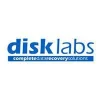Ian
Administrator
- Joined
- Feb 23, 2002
- Messages
- 19,883
- Reaction score
- 1,515
On average, 70% of re-sold hard-drives and memory cards contain pornographic material according to research carried out on 1,000 hard-drives over the course of a year by Disklabs Data Recovery and Computer Forensics.
In addition, the company recently purchased a selection of storage media comprising of 100 hard-disk drives and 50 memory cards and proceeded to process a sample batch to test what data was still retrievable from them. The results were worrying as documents such as CVs and accounting spreadsheets (including names and mobile numbers) were easily accessible.
Perhaps even more worrying was the fact that many previous owners had not deleted temporary Internet files. This means that any new, unscrupulous owner could access personal financial details, such as credit card numbers and could then go on to order goods from Internet pages by simply changing the delivery address. Many of the sampled selection also contained pornographic matter.
It seems that very few people are aware that simply pressing the delete button does not necessarily mean that the data is destroyed and irretrievable. This research comes as a timely reminder to both consumers and businesses that data should be destroyed properly and not simply deleted or formatted, as this is not sufficient to completely erase stored data.
Disklabs have since contacted all of the owners of the hard-drives and memory cards that data was retrieved from to inform them that their old media still contained retrievable data. It must be stressed that all these storage devices have now all been properly wiped by 1st Computer Traders Ltd and the devices are now being used as spare parts for further data recovery tasks sent in to Disklabs Data Recovery and Computer Forensics Services.
In addition, the company recently purchased a selection of storage media comprising of 100 hard-disk drives and 50 memory cards and proceeded to process a sample batch to test what data was still retrievable from them. The results were worrying as documents such as CVs and accounting spreadsheets (including names and mobile numbers) were easily accessible.
Perhaps even more worrying was the fact that many previous owners had not deleted temporary Internet files. This means that any new, unscrupulous owner could access personal financial details, such as credit card numbers and could then go on to order goods from Internet pages by simply changing the delivery address. Many of the sampled selection also contained pornographic matter.
It seems that very few people are aware that simply pressing the delete button does not necessarily mean that the data is destroyed and irretrievable. This research comes as a timely reminder to both consumers and businesses that data should be destroyed properly and not simply deleted or formatted, as this is not sufficient to completely erase stored data.
Disklabs have since contacted all of the owners of the hard-drives and memory cards that data was retrieved from to inform them that their old media still contained retrievable data. It must be stressed that all these storage devices have now all been properly wiped by 1st Computer Traders Ltd and the devices are now being used as spare parts for further data recovery tasks sent in to Disklabs Data Recovery and Computer Forensics Services.



